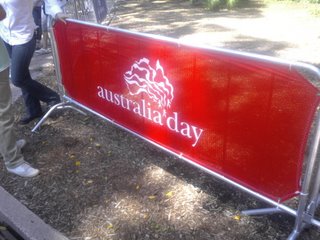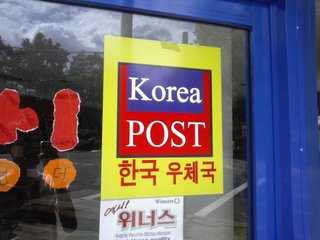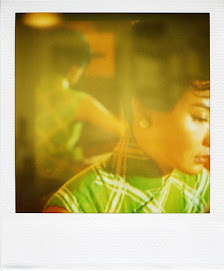This post attempts to give a broad overview of the status of gay and lesbians in Asia currently. I would say that in East Asia and South East Asia, the climate of social acceptance towards homosexuality has increased greatly in recent yrs and especially for young gays and lesbians (below 30) living in countries ranging from China to Indonesia, there is no longer self hatred or self-denial. There are of cos still many whom struggle with their sexual preferences but it can safely be said that the vast majority of under 30 young Asians no longer feel the dilemma and readily accept their homosexual identities.
For those above 30, its still a mixed bag with some still trying to become straight, some whom under previous conservative environments were in denial have now readily embraced the gay lifestyle due to progress in social acceptance, and those whom are in the closet and married whom nevertheless engage in extra-marital sex with men on the side. (y i discourage gay men trying to 'turn bck' straight cos it never works and in the end they marry women 'trying' to change and end up messing up women's life and chance for love.)
I was very surprised when i first came into contact with homosexuality in terms of really delving into what its all about (not the one-dimensional understanding which many ppl have) and found that gay teens nowadays start dating men/women very early like 14,15,16....dating members of the same sex is widespread and normal for many young gay Asians nowadays and most don't feel the need to 'change their sexual orientation'...also many young gay Asians have their own network of gay friends and the picture is vastly different from how it was a mere decade ago when most gay Asians were isolated and lonely. I mean i still subscribed to that outdated thinking a few yrs ago due to my lack of understanding of gays. It is quite clear that images of lonely suicidal homosexuals is quite outdated now and should be replaced with gays whom have lots of gay and straight friends, whom date (and have sex with) same sex people without any feelings of guilt, and basically lead their lives unmarked by self-loathing or feeling weird about their feelings towards the same sex. You'd be surprised how many gay couples live together in the same house across Asia nowadays...how times have changed since the pre-internet days of the early 90s...
So for those of you whom still stick to the idea that gay and lesbian Asians are secluded, isolated, have random sex without much normal dating relationships, well...think again.
Media and Tourism: The media plays a powerful role in influencing gay and lesbian perceptions of certain countries and i can give two examples. For instance, the host of gay-themed movies and tv series coming out from Taiwan as well as well reported gay pride parade which is attended and funded by the Taipei City Mayor and Taipei City Council has, in my opinion, helped to increase significantly tourism to Taiwan by gay and lesbian travellers. I already know like 3 gay bloggers whom visited Taiwan last yr and another gay blogger intending to go this year. I believe the perception that Taiwan is gay-friendly from the annual gay pride as well as Taiwanese media plays an important role in influencing them to visit Taiwan.
The same for Korea. Korean dramas are quite popular amongst many gay male Asians obviously for the same reasons they are popular with the women: cute guys, romantic, willing to do anything for you,etc,etc. The series 'Gung' (Palace) has quite a strong fan following amongst gay Chinese men i think. And the desirability of Korean men has shot up since the Korean Wave swept thru Asia. This can be evidenced by one simple example amongst others i have. There's a gay japanese friendship site for foreigners whom like japanese men and about a year ago they added a special 'korean gay men' section indicating the popularity of korean men amongst Asian gay men. Thats the power of the media for you!
 An alley in Tokyo's Gay District, Shinjuku Ni-Chome. The area has around 200 gay establishments ranging from gay clubs, bars and saunas to host clubs. All the bright signboards visible are gay establishments. This photo was taken during my exchange in Tokyo in 2005.
An alley in Tokyo's Gay District, Shinjuku Ni-Chome. The area has around 200 gay establishments ranging from gay clubs, bars and saunas to host clubs. All the bright signboards visible are gay establishments. This photo was taken during my exchange in Tokyo in 2005.'Boys Love'
 Title of a boy's love book 'Hey....I really like you..'
Title of a boy's love book 'Hey....I really like you..' The trend of boy's love novels and pc games has become more and more lurid and adult with more emphasis on man-on-man sex as can be gleaned from the above pix.
The trend of boy's love novels and pc games has become more and more lurid and adult with more emphasis on man-on-man sex as can be gleaned from the above pix. Often the stories in 'boys love' involves the dominant male and the recessive male whom gets penetrated. In effect, you could say the recessive male is merely a symbol of women as the storyline mirrors straight adult manga with the recessive male always seen as being dominated, unwilling to have sex and in pain at being penetrated.
Often the stories in 'boys love' involves the dominant male and the recessive male whom gets penetrated. In effect, you could say the recessive male is merely a symbol of women as the storyline mirrors straight adult manga with the recessive male always seen as being dominated, unwilling to have sex and in pain at being penetrated.
I think its a 'boys love' pc game....
Now, many of you are probably wondering what the heck is 'boys love'???! Well, its a genre of gay male-male love comics and pc games in Japan which cater to teenage girls and women...yes, u heard me correctly, targeting TEENAGE GIRLS AND WOMEN NOT GAY MEN. Its ironic why women would want to read these kind of male-male love (and plenty of gay sex too!) novels and comics...but well u know Japan has alot of kinky and weird trends....
Korean Movies:
'If You Were Me' series by the Korean National Human Rights Commission:
I absolutely love this unique series which focuses on discrimination themes in Korean society with each film consisting of 4-5 stories, all of which are directed by some famous korean commercial director such as jang jin and park chan-wook. In 'If ' 2 and 'If' 3 there are segments on homophobia. In the second instalment, there' s a segment on korean masculinity with an inclusion of a gay theme too where one of the best friends is gay....then in 'If' 3 which i haven't been able to see yet, there is one segment exclusively on homophobia whereby 2 boys at a boys school are bullied as everyone thinks they're a gay couple.....a must watch series for an introduction of the social discrimination issues faced by modern Korea today....
No Regrets (2006):

Review from Darcy's Korean Film Page:
With the critical praise for his shorts "Sugar Hill" and "Good Romance" and with No Regrets being the first South Korean feature directed by an out Gay Korean, one can say that there was a lot of pressure on Leesong Hee-il regarding his debut feature. Regardless of whether he felt this pressure himself, Leesong has lived up to the challenge providing an engaging story, equal parts melodrama, social commentary, comedy, and treatise on hope for us all.
Su-min, an orphan who, since he is unable to pay for university, must leave the orphanage at 18. (Leesong's research for this film led him to find that this requirement leads many orphans, male and female, to end up in factories and hostess/host bars in Seoul at 18. "Some days, I feel like I might like to shoot an orphanage story," he says) Su-min heads to Seoul to work various jobs in order to pay for computer classes and later university. An ethical stance on Su-min's part results in his losing his factory job. (Such a morally upstanding gesture along with Lee's beauty endears him early on with the audience. This also provides a nice expose on class in Queer communities, adding layers to the 'hostess bar' genre in South Korean cinema that Leesong redefines here.) Hit hard on financial times, Su-min ends up taking a job at a host bar. The boss (they call him 'Madame') of this host bar is reluctant to bring on Su-min since experience has shown him that gay-identified hosts will often leave once they become romantically involved with one of their clients. Su-min is at a point in his life where he's given up on love, so he believes this won't happen to him, until a man from his past enters the host bar and life gets messier, more beautiful, and messier again. But for those who have had enough of the self-loathing and tragedy demanded in some films with sexual minority plots and subplots, hold on. At the risk of revealing the ending, let me just say don't worry. As much as I have problems with the narrative flow near the ending, at least No Regrets is not going where we are initially led to believe it is.
One of the best aspects of this film is how we aren't provided the obligatory caricatures of Gay 'types' on prime-time sitcoms in the United States. Su-min is a well-rounded character and I love his refusal to answer questions he doesn't feel people have the right to ask. Each character has a depth that allows each to be more than simply the queen, the naive waif, the self-denier, etc. Refusing to follow the path towards Queer liberation espoused by sitcoms, No Regrets is freed to provide some refreshingly, rip-roaring hilarious moments.
The banter provided by Madame and one of Su-min's co-workers would have had the audience at the 11th PIFF rolling on the floor with laughter had there been room on the floor of the packed house. Many of the jokes are specific to a Korean audience, (no one was able to explain to me what was meant by the crowd-pleasing 'You look like the dick on Shilim Avenue' slam of the country bumpkin), but there is enough context here and quality acting and directing to ascertain what commentary witty retorts such as 'Wheat-floured face' are intended to impart.
But still, the joy of my experience with No Regrets was obviously enhanced by the crowd and their positive reactions to what they were watching. I almost missed this film, but thankfully ran into Italian film critic (and Koreanfilm.org contributor) Paolo Bertolin in the maze of streets in Haeundae that confound one's sense of cardinal directions. He insisted I get a standing-room ticket for the sold-out show. So I did just that and was one of the lucky standing-room-ers who was able to snag a seat from the late ticket holders. (PIFF is notorious for its strict time schedules. ) Just before the film began I looked to see that every seat was occupied, every step in the theatre appropriated as a seat, and still more people were lined up along the walls anxious to see this film.
Commenting on the particularities of Queerness in South Korea would take a dissertation that space here will not allow. Until I stumble on such a Ph.D., how 'bout a master's thesis instead? Matty Wegehaupt's master thesis "Hong Seok-cheon - Keoming Aut in South Korea" details the cultural nuances around the South Korean TV actor's public coming out in 2002 that was immediately followed by his dismissal from the station that employed him. Such actions might lend support to a view that South Korea is a "conservative" country when it comes to sexual minorities. But just as Bruce Cumings argues in Korea's Place in the Sun that the adjectives of "liberal" and "conservative" as used in the U.S. are not fully transferable to a Korean context, Wegehaupt questions whether one can really call a country 'conservative' where the labor union rushed to the defense of their openly Gay colleague? And this defense was not due to 'Western Liberalization' but to something organic in South Korean culture. In fact, as Wegehaupt would later elaborate for me in an email, "While it may be the perspective of a minority, within Korean cultural mores there exist the means to freely accept and support the new phenomenon of public homosexual identities." Perhaps nothing supports Wegehaupt's claim more than the packed crowd that came to watch No Regrets. And perhaps nothing supports Leesong's film of hope more than the smiles on the faces of many of us who watched this ground-breaking film, smiles shared on the faces of Su-min and Jae-min (Lee Han) as they survive the tragedy that surrounds them, reminding us that until we can live honestly with ourselves in all countries, such tragedy surrounds us all. (Adam Hartzell)
The above is a review of the first mainstream Korean gay-themed film to be released in Korea. Previous films such as 'The King and the Clown' and 'Bungee Jumping on their Own' have only heavily hinted but never expressly come out and portrayed the relationship of their protagonist as a gay one.
Articles relating to Gay and Lesbian topics in the Korean Media:
Gay Sex Transmitting Most Korean AIDS Chosun Ilbo Oct 2002
National Institute of Health announced Thursday the results of an study of 269 people infected with AIDS, which showed that one person in Korea is infected with the AIDS virus a day, most of which are gay men. For women, more than two thirds of the cases came from sex with an infected partner. One or two people a year were infected through encounters with prostitutes.
Half of women who were infected through sexual intercourse with a Korean man were of blood type B, but 98 percent of men who were infected through intercourse with a Korean woman had a blood type of B.
If people with AIDS were infected from normal intercourse between men and women, the percentage of blood type B should be similar. But the test result showed a difference nearly two times the number.
The difference is attributed to homosexual relationships. Ninty-eight percent of those infected through homosexual love were with blood type B.
Doctor Lee Jong-gu at the NIH said that in many cases, men infected by homosexual sex lied to their wives, saying that they got the virus from sex with women.
The NIH concluded that AIDS has been spreading through homosexual relationships, and no one was infected through sexual intercourse with women, according to the investigation.
Estimating that more than half of the men with the AIDS virus contracted it through homosexual relationships, the NIH said it has decided to install 18,000 condom machines at such places as gay bars over the next year. (Park Jung-hyeon, jhpark@chosun.com )
Gay Lifestyles Conquer Media Mainstream Chosun Ilbo August 23 2005

Two handsome men in their 20s are sitting at a table face to face. A caption reading ※same-sex couple§ runs across the screen. The two feel each other*s hair, asking ※Did you have a haircut?§ They speak in a whisper and caress each other*s necks. Soon the sentence, ※We subscribe to a couple rate plan to save on phone bills§ pops up. It is a commercial for a mobile telecom provider that has recently gone on air.
No great mystery there. The producers, of course, point out that the couple rate plan was worked out so that mixed-sex couples can subscribe as well.
But the commercial signals that in Korea, too, same-sex relationships are making it into the media mainstream. No longer confined to the nudge and the wink, gay characters on TV are coming out of the closet, be it Lee Kyun*s vampire in ※Hello, Francesca§ or the camp antics of Kim Nul-me in SBS late-night comedy ※People Looking for Laughter.§ Internationally, shows such as ※Queer as Folk§ and reality show ※Freshmen Diary§ lead the way, while in ※Sex and the City§ it is a given that any modern single woman needs comfortable gay friends.
On Korean terrestrial TV, attitudes have yet to change dramatically, with gay characters usually played for cheap laughs. Last May, MBC drama ※Pounding Heart§ featured singer Harisu as a transgender character, but the responses from viewers were decidedly weak.
Still, amplified, half-concealed or confidently ※out, gay lifestyles are here to stay. For the producers of the couple rate commercial, the surprise was the lack of surprise among viewers. ※It made us think our society has changed.§ Proof positive, perhaps, that a country*s sense of respect for others has improved if it can look without aggression on sexual minorities.
(englishnews@chosun.com )
Previous 'Gay Korea Column' at http://chinesechic.blogspot.com/2006_03_01_archive.html
and scroll to March 13 2006 post.
This ends the gay trilogy and i hope this series of posts have revealed my thoughts and opinion on this area of interest of mine as well as enlightened readers whom previously weren't aware or interested as to the current status and trends of homosexuality in Asia....will be awhile before i post again on this....comments and questions are always welcome:)P
p/s: looking forward to attending my very 1st Mardi Gras Parade come 3 March on Oxford Street, Darlinghurst...will take plenty of pics and tell u guys and gals all bout it!






 Gay Russian Magazine Cover...the guy is cute and sexy hey? Maybe the saying 'all the good men are either married or gay' is true after all? hahaha
Gay Russian Magazine Cover...the guy is cute and sexy hey? Maybe the saying 'all the good men are either married or gay' is true after all? hahaha Designer label frequented by gay men...u've got to admit gay men simply have more style and fashion sense on the whole as compared to straight men....look at this underwear, its so ooooo freakin delicious and sexy isn't it? Straight men should learn a thing or two from gay men when it comes to the dress sense department....i'm sure the girls would appreciate it ;)
Designer label frequented by gay men...u've got to admit gay men simply have more style and fashion sense on the whole as compared to straight men....look at this underwear, its so ooooo freakin delicious and sexy isn't it? Straight men should learn a thing or two from gay men when it comes to the dress sense department....i'm sure the girls would appreciate it ;)









